#abolish the finance system
Text
Biden wants to ban ripoff “financial advisors”
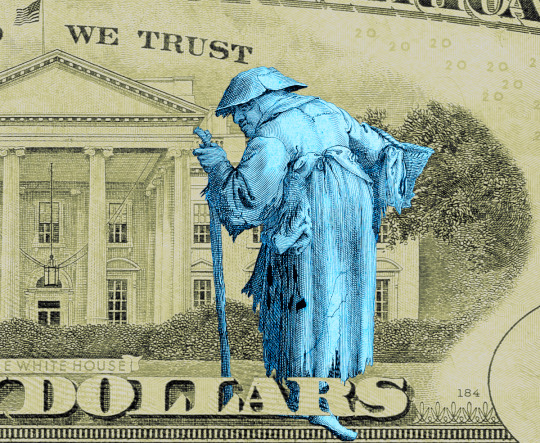
I'll be at the Studio City branch of the LA Public Library on Monday, November 13 at 1830hPT to launch my new novel, The Lost Cause. There'll be a reading, a talk, a surprise guest (!!) and a signing, with books on sale. Tell your friends! Come on down!

Once, American workers had "defined benefits pensions," where their employers promised to pay them a certain amount every year from their retirement to their death. Jimmy Carter swapped that out for 401(k)s, "market" pensions where you have to guess which stocks will be valuable or starve in your old age:
https://pluralistic.net/2020/07/25/derechos-humanos/#are-there-no-poorhouses
The initial 401(k) rollout had all kinds of pot-sweeteners that made them seem like a good deal, like heavy employer matching that doubled or even tripled the value of every dollar you put into the market for your retirement. But over the years, as Reaganomics took hold and workers' power ebbed away, all these goodies were clawed back. In the end, the market-based pension makes you the sucker at the poker table, flushing your savings into a rigged casino that is firmly tilted in favor of finance barons and other eminently guillotineable plutocrats.
Neoliberalism is many things, but most of all it is a cult of individualism. The fact that three generations of workers are nows facing down retirement without pensions that will provide them with secure housing and food – let alone money to see the odd movie, buy birthday gifts for their grandkids, or enjoy a meal out now and then – is framed as millions of individual failures, not a systemic one.
In other words, if you are facing food insecurity and homelessness after a lifetime of hard work, it's because you saved wrong. Perhaps you didn't save enough (through a 40-year run of wage stagnation and skyrocketing housing, health and education costs). Or perhaps you saved wrong, making the wrong bets on the stock market. If you can't afford to run your air conditioner during a heat dome, that's on you: you should have been better at stocks.
Apologists for this system will say that you don't have to be good at stocks – you just have to pay an Independent Financial Advisor to pick the stocks for you and you'll be fine. But IFAs don't work for free! What if you can't afford one?
Enter "predatory inclusion" – the practice of offering scammy, overpriced and substandard products to poor people and declaring it to be a good deed, because otherwise, those poor people would have to do without. The crypto bubble relied heavily on this: think of Spike Lee and others shilling for pump-and-dump scams as a way of "building Black wealth":
https://www.nytimes.com/2021/07/07/business/media/cryptocurrency-seeks-the-spotlight-with-spike-lees-help.html
More recently, Intuit and other scammy tax-prep services have argued against the IRS's plan to offer free tax preparation as bad for Black and brown people, because it will deny them the chance to be deceived and ripped off with TurboTax:
https://pluralistic.net/2023/09/27/predatory-inclusion/#equal-opportunity-scammers
Back in 2018, Trump won the predatory inclusion Olympics, when his Department of Labor let the Fifth Circuit abolish the "Fiduciary Rule" for Independent Financial Advisors:
https://www.investopedia.com/updates/dol-fiduciary-rule/
What was the Fiduciary Rule? It said that your IFN had to put your interests ahead of their own. Like, if there were two different funds you could bet on, and one would pay your IFN a big commission, while the other would be a better bet for you, the IFN couldn't put your retirement savings into the fund that offered them a bribe.
When Trump killed the Fiduciary Rule, he proclaimed it a victory for poor people, especially Black and brown people. After all, if IFNs weren't allowed to accept bribes for giving you bad financial advice, then they would have to make up the difference by charging you for good advice. If you couldn't afford that advice, well, you'd have to make bad retirement investments on your own, without the benefit of their sleazy self-dealing.
The Biden Administration wants to change that. Biden's Acting Labor Secretary is Julie Su, and she's very good at her job. Last spring, she forced west coast dockworkers' bosses to cough up the contract they'd stalled on for a year, with 8-10% raises for every worker, owed retroactively:
https://pluralistic.net/2023/06/16/that-boy-aint-right/#dinos-rinos-and-dunnos
Su has proposed a way to reinstate the Fiduciary Rule, as part of the Biden Administration's war on junk fees, estimating that this will increase retirees' net savings by 20%:
https://prospect.org/labor/2023-11-07-julie-su-labor-retirement-savers/
The new rule will force advisors who cheat their clients to pay restitution, and will require them to deliver all their advice in writing so that this cheating can be detected and punished.
The industry is furious, of course. They claim that "The Market (TM)" will solve this: if you get bad retirement savings advice and end up homeless and starving, then you will choose a different advisor in your next life, after you are reincarnated (I guess?).
And of course, they're also claiming that forcing IFNs to stop cheating their clients will deny poor people access to expert (bad) advice. As the Financial Services Institute's Dale Brown says, this will have a "negative impact on Main Street Americans’ access to financial advice":
https://www.fa-mag.com/news/legal-challenge-predicted-for-new-dol-fiduciary-proposal-75257.html
Here's that rule – read it for yourself, then submit a comment expressing your views on it. The government wants to hear from you, and administrative law requires them to act on the comments they receive:
https://www.federalregister.gov/documents/2023/11/03/2023-23782/proposed-amendment-to-prohibited-transaction-exemptions-75-1-77-4-80-83-83-1-and-86-128
Su is part of a wave of progressive, technically skilled regulators in the Biden administration that resulted from a horse-trading exercise called the Unity Task Force, which divvied up access to top appointments among the progressive wing and the finance wing of the Democratic Party. The progressive appointments are nothing short of incredible – the most competent and principled agency leaders America has seen in half a century:
https://pluralistic.net/2023/10/23/getting-stuff-done/#praxis
But then there's the finance wing's appointments, like Judge Jacqueline Scott Corley, who ruled against Lina Khan's attempt to block the rotten Microsoft/Activision merger (don't worry, Khan's appealing):
https://pluralistic.net/2023/07/14/making-good-trouble/#the-peoples-champion
Perhaps the worst, though, is Biden's Secretary of Commerce Gina Raimondo, a private equity ghoul who did a stint for the notorious wreckers Bain Capital before founding her own firm. Raimondo has stuffed her department full of Goldman Sachs alums, and has sidelined labor and civil society groups as she sets out to administer everything from the CHIPS Act to regulating ChatGPT.
As Henry Burke writes for the Revolving Door Project and The American Prospect, Raimondo's history as a corporate raider, her deference to the finance sector, and she and her husband's conflicts of interest from their massive stakes in companies she's regulating all serve to undermine Biden's agenda:
https://prospect.org/economy/2023-11-08-commerce-secretary-gina-raimondo-undercutting-bidenomics/
When the administration inevitably complains that its popular economic programs aren’t breaking through the media coverage, they’ll have no one to blame but themselves.
The Unity Task Force gave us generationally important policymakers, but ultimately, it's a classic "pizzaburger." If half your family wants pizza, and the other half wants burgers, and you serve them something halfway in between that makes none of them happy, you haven't made a wise compromise – you've just made an inedible mess:
https://pluralistic.net/2023/06/17/pizzaburgers/

If you'd like an essay-formatted version of this post to read or share, here's a link to it on pluralistic.net, my surveillance-free, ad-free, tracker-free blog:
https://pluralistic.net/2023/11/08/fiduciaries/#but-muh-freedumbs
#pluralistic#julie su#fiduciary rule#intergenerational warfare#aging#retirement#401ks#old age#pensions#finance#pizzaburgers#Gina Raimondo
261 notes
·
View notes
Note
My take is that i would rather my tax dollars go towards making the T fareless than towards riot gear for BPD to sweep student encampments with. The T shouldn't have to be self-funding (and for the record, it never has been; only a relatively small portion of its budget comes from fares) because public transit isn't meant to be a direct profit engine for the state. It's an indirect economic benefit because population mobility leads to economic growth. I know this doesn't apply right now but like, in a perfect world, yes, the T would be free to ride. Plus I don't really see the point in shaming people for fare evasion because most of the people who do so are too poor to afford it. And even by the most generous estimates evasion doesn't really put a noticeable dent in even the portion of the budget that actually does come from fares.
You make several good points here: We should 100% defund the police, shaming people for fare evasion is ineffective, and public services like transit should not be run as for profit systems. Buses should be free for all the reasons I described, and this would be the greatest benefit for the mobility of low income people.
However, why is the perfect T free, rather than merely affordable? Even the most advanced socialist economies history has seen never abandoned money, revenue, or accounting. Lenin’s NEP didn’t abolish the commercial transaction, it simply biased the economy in favor of worker ownership through favorable lending policies. People still needed to pay and get paid for things.
Mass transit is expensive, and someone somehow has to foot the bill. Payment at point of service is a fair way of paying for a service because the greatest users contribute the greatest resources. Subsidy in the form of tax is a good way to reward a transit system for its non-financeable benefits to society, what you refer to as economic growth, and at the level of a ubiquitous daily service like a bus or maybe light rail it makes sense to be truly single payer. That said, lots of services like commuter rail should still be partially user supported in my mind, because they are not equally beneficial to everyone and the beneficiaries should reasonably contribute more.
24 notes
·
View notes
Text
The competing thoughts in my head right now:
1) Imagine what sort of cases are going to make it before SCOTUS to decide by June of next year. Settled law means fuck all at this point. There is no limit to what they might do next, and conservatives are going to be even more eager to get cases that could go in their favor before the court.
They didn't stop at Roe, they won't stop at ending affirmative action, and they won't stop at legalizing anti-queer discrimination. I'm betting my money right now, that by this time next year, at least one of the legal challenges currently being fought against trans healthcare will reach SCOTUS.
2) Less than 7 years ago, one of the most potentially qualified women in American history lost the presidency in spite of having won the popular vote to a man who is easily the least qualified crook to have ever held the office in American history.
Just imagine if we were living in a different timeline where President Hillary Clinton had used her power to appoint three liberal (or at the very least, moderate) Supreme Court Justices. The entire trajectory of this country would currently be different. Abortion rights, affirmative action, and LGBTQ+ rights would've been safe for another generation. But her emails. Elections have consequences. And our electoral system is flawed.
3) The Constitution needs to either be rewritten or drastically amended; the major problem with this is that our current leadership cannot be trusted to do so. It's extremely clear that "we the people" still only means white Christian men.
I'm not actually certain that the United States should exist as a single country anymore...I just find it hard to imagine any alternative. This country truly feels like 50 individual countries badly pretending to be 1...but no longer having even the minimal protections provided by the Constitution would be a nightmare for minorites in red states. And a lot of people would be trapped by that, just as they already are: unable to leave due to finances or disability, or unwilling to leave their family, culture, or history behind.
Either way, abolish the electoral college, and implement term limits for SCOTUS Justices, and I think that the length of no more than 16 years or four presidential terms (as most presidents serve two four year terms) is adequate.
4) This means resistance. And I'm trying to figure out what that looks like. I've mostly been doing this by looking at the past and seeing how my queer and trans predecessors fought back, because none of this shit is new. But this also calls for the question: what else can we do? Are there new ways that we can resist? How do we build a future in a world that looks more like the past everyday?
138 notes
·
View notes
Text


Billionaire fossil fuel mogul David Koch died August 23, 2019. Though he will rightfully be remembered for his role in the destruction of the earth, David Koch’s influence went far beyond climate denial. Ronald Reagan may have uttered the famous words, “Government is not the solution to our problem, government is the problem” back in 1981—but it was David Koch, along with his elder brother Charles and a cabal of other ultrarich individuals, who truly reframed the popular view of government. Once a democratic tool used to shape the country’s future, government became seen as something intrusive and inefficient—indeed, something to be feared.
“While Charles was the mastermind of the social reengineering of the America he envisioned,” said Lisa Graves, co-director of the corporate watchdog group Documented, “David was an enthusiastic lieutenant.”
David Koch was particularly instrumental in legitimizing anti-government ideology—one the GOP now holds as gospel. In 1980, the younger Koch ran as the vice-presidential nominee for the nascent Libertarian Party. And a newly unearthed document shows Koch personally donated more than $2 million to the party—an astounding amount for the time—to promote the Ed Clark–David Koch ticket.
“Few people realize that the anti-American government antecedent to the Tea Party was fomented in the late ’70s with money from Charles and David Koch,” Graves continued. “The Libertarian Party, fueled in part with David’s wealth, pushed hard on the idea that government was the problem and the free market was the solution to everything.”
In fact, according to Graves, “The Koch-funded Libertarian Party helped spur on Ronald Reagan’s anti-government, free-market-solves-all agenda as president.”
Even by contemporary standards, the 1980 Libertarian Party platform was extreme. It called for the abolition of a wide swath of federal agencies, including the Food and Drug Administration, the Department of Energy, the Environmental Protection Agency, the Nuclear Regulatory Commission, the Federal Aviation Administration, the Bureau of Land Management, the Federal Election Commission, the Bureau of Alcohol, Tobacco, and Firearms, the Federal Trade Commission, and “all government agencies concerned with transportation.” It railed against campaign finance and consumer protection laws, the Occupational Safety and Health Act, any regulations of the firearm industry (including tear gas), and government intervention in labor negotiations. And the platform demanded the repeal of all taxation, and sought amnesty for those convicted of tax “resistance.”
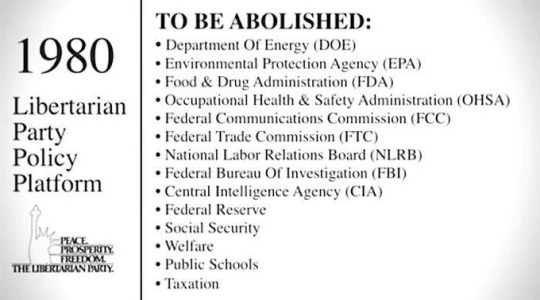
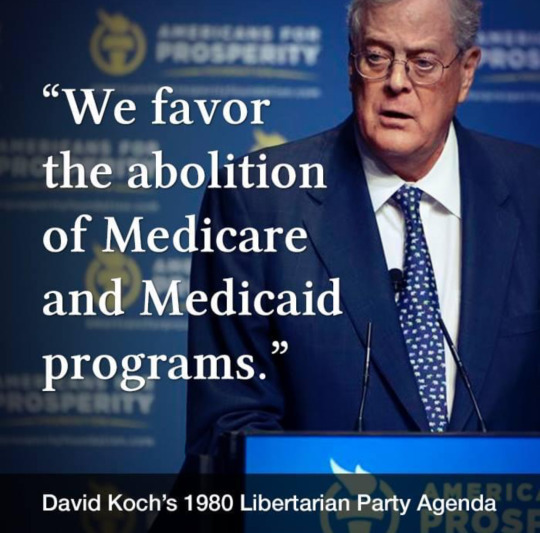
Koch and his libertarian allies moreover advocated for the repeal of Social Security, Medicare, Medicaid, and other social programs. They wanted to abolish federally mandated speed limits. They opposed occupational licensure, antitrust laws, labor laws protecting women and children, and “all controls on wages, prices, rents, profits, production, and interest rates.” And in true libertarian fashion, the platform urged the privatization of all schools (with an end to compulsory education laws), the railroad system, public roads and the national highway system, inland waterways, water distribution systems, public lands, and dam sites.
The Libertarian Party never made much of a splash in the election—though it did garner almost 12 percent of the vote in Alaska—but doing so was never the point. Rather, the Kochs were engaged in a long-term effort to normalize the aforementioned ideas and mainstream them into American politics.
(continue reading)
#politics#republicans#libertarians#koch brothers#koch bros#libertarianism#conservatism#ronald reagan#reaganism#charles koch#david koch#libertarian party
57 notes
·
View notes
Text
like obvs this is a majorly anti cop anti military website, I can read the room and take the temperature of the room & the situation
but it is so fascinating to me the way the LGBT+ community and sphere online has such derision, disdain, and resentment for the people who came before them and ACTUALLY pushed progress in real life... like it's an "extremely online" phenomenon and is perched on such a pedestal, like a tier of unchallenged privilege & safety in these folks' real lives
like to pivot for ex to women's rights in the US, obvs there's soooo much tone deaf racism & classism still regurgitated, right, but we have concrete specific dates for things like the right to vote, right to independent finance, right to independent non inherited land & property ownership, rights to abortion or adoption or divorce, the criminalization of spousal rape, etc etc on top of racially specific laws incl slavery abolition, abolishment of anti miscegenation law, legal protections against forced sterilization, laws around informed medical consent re: experimentation or companies' retention of your cells, DNA, or remains
it's documented!
with racial stuff, the progress is also often so recent, like in a lot of places shit was still legally segregated when my parents were kids, def was segregated in my grandparents' and great grandparents' time, we see the lives & lived memories of our families' existence in this country, the Civil Rights Movement was recorded on video, audio, and in writing, despite Gil Scott-Heron's insistence that the revolution will not be televised, we watched... ALL of that!
and obvs there were & are activists then & now who rightfully point out that if you limit yourself to climbing that sheer cliff face to fight for your rights & for respect & equality within the framework of an oppressive culture, nation, or institution, you then limit the potential for truly radically demanding to be regarded as an equal by destroying & disnantling those unjust systems from the outside, because the master's house will never be dismantled with the master's tools...
but at the same time; there is room for more than "revolution or nothing," and no one secured full rights and killed racism in the womb in one fell swoop, sometimes you have to fight the unglamourous un-gloried fight from within the master's walls because that's where you fucking live.
the US military is not "good," no military is "good," and any military directed by a corrupt imperial/neoimperial racist state even moreso, but it is still the scaffolding through which many of us, our peers, our community, our comrades, must climb. the same as any of our other, many, corrupt institutions, particularly as engaged with the judicial branch of a government that does not care if disenfranchised, oppressed, and/or minority citizens or non-citizens alike live or die.
progress within an institution imposed upon me is still progress, progress within an avenue of survival of that institution, even while that avenue may be oppressive and imposed upon others itself, is still progress. two things can be true at once, and many more besides, if you are willing and mentally capable of looking beyond the limitations of your own life experiences.
26 notes
·
View notes
Note
I know that realistically their relationship probably would've ended due to distance but now I'm wondering. If Laurens had survived, and with what you mentioned as Hamilton becoming more corrupt when he became a politician, would that have caused a rift between them?
Not sure, it is likely Laurens would have been a federalist - the same as Hamilton was - but I doubt he would make it any farther above a position in power other than a State level. Unless he truly would have proved to be more essential to Washington after the war, but I waver on that bet because he was usually utilized to make contact with his father, or work abilities as an aide and soldier throughout the war. So I'm not sure what use he would be of to Washington after all that. And the difference in positions probably meant Laurens and Hamilton couldn't assist each other much, and the partnership would drop.
Regardless, I'm sure Hamilton and Laurens would have become a political duo even for a little bit, especially because that was Hamilton's initial plan after the war. Hamiton remained in contact with McHenry even after war as they discussed politics, so it's likely. And maybe in a few matters he could assist Hamilton even if it's likely he wouldn't have made it so far into power as Hamilton did. But I'm also sure they would work in Law together if Laurens was still following that path at this point. But I've never heard of Laurens having much interest in finances, so much like their friendship; I kinda theorize any sort of partnership they had would have died down sometime after Hamilton became Treasury Secretary.
Although on matters of corruption; I am sure Laurens would differ from Hamilton on the matter of slavery in their future careers, probably causing a drift in their bond. As doubtful as it is that Laurens would make any more progress in abolishing slavery ( Considering his methods before heavily relied on the system of war and the army, and even then he was severely disagreed with and restrained ), I am certain he would have continued to preach for abolishment even after the revolution. But some disputes would erupt between them due to Hamilton's negligence to slavery matters, and even assisting the trade between his in-laws, despite his personal beliefs to condemn it. Hamilton often disregarded his morals and values on slavery as to not disturb his high social status amongst other wealthy, slave owning men — who he surrounded himself with. All while Laurens wouldn't have dropped his abolishment dream even after the war. But then again, maybe Hamilton would have continued to preach for abolishment if he had Laurens besides him. Who knows.
#amrev#american history#american revolution#alexander hamilton#historical alexander hamilton#john laurens#historical john laurens#history#queries#sincerely anonymous#Cicero's history lessons
74 notes
·
View notes
Text
A Million Reasons To Abolish The Cia
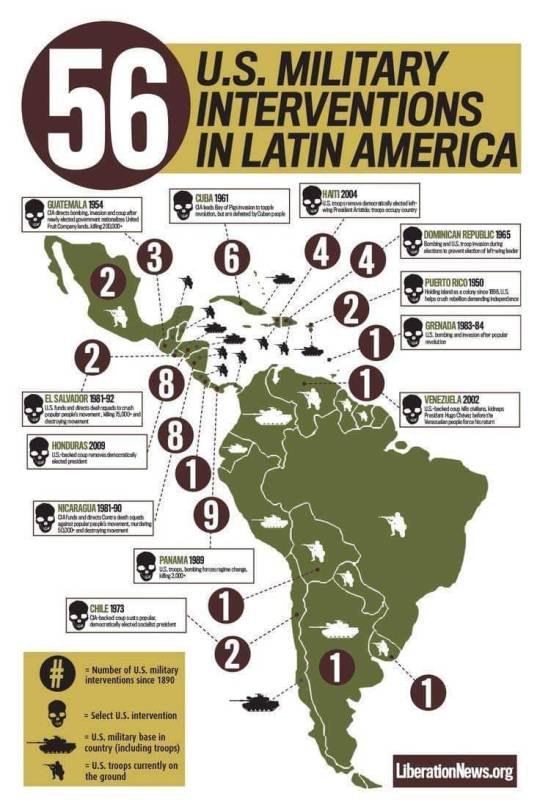
The CIA is the deadliest terrorist organization in the world, bar none. In its 73-year existence, the CIA has been responsible for the murder of millions and the destruction of progressive movements and governments in Asia, Africa, Latin America and Europe.
The CIA engineered or assisted coups in Iran, Guatemala, Congo, Iraq, Indonesia, Greece, Brazil, Bolivia, Chile, Argentina, Uruguay and more, and brought to power regimes that used extreme brutality in the interests of U.S. corporations and local elites.
CIA torturers beat detainees at Guantanamo and held them in stress positions literally for days, sometimes treating their wounds in such a way as to prolong the pain.... some prisoners were kept awake for 180 hours—in other words a week.
The CIA under the leadership of Allen Dulles recruited more than 1,000 Nazis as spies in the Cold War against the Soviet Union. Many of these fascists were war criminals from the highest ranks of the Nazi command, and received U.S. govt protection.
CIA carried out brazen terror plots to bomb, starve, and sabotage the Cuban Revolution. Preparations were in place to incentivize the murder of Cuban communists through a “system of financial rewards .... for killing or delivering alive known communists”
CIA support for torture in Latin America was equally extensive. In Chile, the CIA-supported coup which brought Pinochet to power brought with it the torture and murder of thousands of activists. The head of Chile’s secret police was a CIA asset.
In 1953 the CIA overthrew the govt of Iran. The CIA organized right-wing military leaders, financed groups of criminals to attack parliament. CIA-designated generals arrested Mossadegh and declared Martial Law. The Shah was put on the throne as a tyrant with absolute power.
In 1978, the communist party and progressive members of the Afghan military overthrew the monarchy. Immediately following the revolution, the CIA organized counter-revolutionary mercenaries supported by feudal landowners. This militia called itself the Mujahedeen.
The CIA and NSA spy services worked at all levels for apartheid and against the African National Congress activists who were routinely murdered, tortured and sentenced to life in the hell holes of South Africa.
#abolishthecia#leftist#capitalismsucks#bernie sanders#justice democrats#us foreign policy#end us imperialism#fuck billionaires#fuck the usa
25 notes
·
View notes
Note
Hello! What was Lafayette's social status at the end of his life? Didn't the French Revolution do away with the entire aristocratic system or something so was he still technically a marquis? Did he still have a huge annual income? I think Adrienne was able to reclaim their confiscated land so I assume they could collect rent that way, but how would that and their general standing in society compare to their days in the ancien regime? Sorry for so many questions, I’m just so curious haha. Thank you for being such a great resource!
Dear Anon,
no need to apologize, I like getting asks. :-) So let us get right to it!
Yes, La Fayette was, at the end of his life, still a Marquis – or rather again. The French Revolution saw the abolishment of the monarchy and of noble titles alike. This was an idea that La Fayette very much promoted and supported so he did not mind the abolishment in and on itself. Later under Napoléon and then during the Bourbon Restoration, noble titles were given back, and new ones were created. La Fayette’s son Georges inherited his father’s title and his son then in turn inherited the titles from Georges. The line ended there because the family ran out of male heirs at this point. But although La Fayette was a Marquis again, he had a marked preference for the address General La Fayette – a nod to his republican tendencies and his military career. It was moreover a title that he had earned himself and that had the same meaning for his friends all around the world.
It is true that Adrienne managed to reclaim most of the family’s property through different methods and strategies. But there was also a lot that she could not get back, especially in terms of items of value that the family had once owned. The years that Adrienne and La Fayette were in prison had cost the family a great deal of money while simultaneously no money could be generated. By the time La Fayette and his family settled in Danish-Holstein, they were deeply in debt. Although never returning to the highs of their pre-Revolution wealth, the La Fayette’s were eventually once more well off – although there were some bumps in the rode and the help of America was greatly appreciated and needed. I have spoken about La Fayette’s financial concerns during different times of his life in the past but never in a single comprehensive post that I could link for you. It certainly is somewhere one my list, but I do not know if anybody would be interested in a breakdown of La Fayette’s finances. So instead of a detailed breakdown of his finances, there is this quote about the nature of his debts:

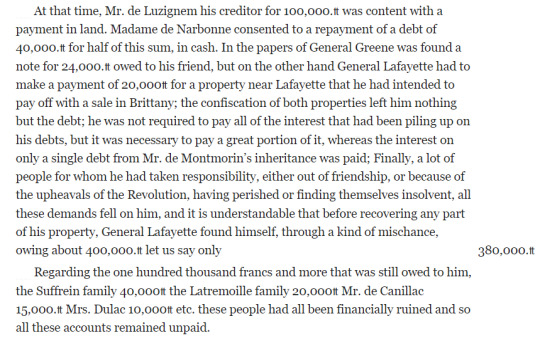
“Enclosure: Lafayette’s Description of his Finances, [ca. 18 November 1809],” Founders Online, National Archives, https://founders.archives.gov/documents/Jefferson/03-02-02-0006-0002. [Original source: The Papers of Thomas Jefferson, Retirement Series, vol. 2, 16 November 1809 to 11 August 1810, ed. J. Jefferson Looney. Princeton: Princeton University Press, 2005, pp. 10–26.] (06/04/2023)
The same report also details La Fayette’s incomes:
3d A working farm that will bring him next year, all expenses taken into account, twelve to thirteen thousand francs in net income and will increase in value in ensuing years.
4th To this landed income we must add the balance of the pension owed to his rank as general, which amounts to six thousand francs minus a slight deduction.
It follows that supposing that all the debts are paid off by the land Congress had the munificence to give him in Louisiana, each of Mr. de Lafayette’s children receiving from him 3000.₶ in annuities, all his family receiving room and board at his house, he would have an income of eighteen thousand livres in annuities, which will be successively raised to 20,000.₶
“Enclosure: Lafayette’s Description of his Finances, [ca. 18 November 1809],” Founders Online, National Archives, https://founders.archives.gov/documents/Jefferson/03-02-02-0006-0002. [Original source: The Papers of Thomas Jefferson, Retirement Series, vol. 2, 16 November 1809 to 11 August 1810, ed. J. Jefferson Looney. Princeton: Princeton University Press, 2005, pp. 10–26.] (06/04/2023)
Some smaller incomes were left out and some of the numbers mentioned were at this point only estimated values. I would say, from all that I have read, that the farm at La Grange yielded eventually more than the proposed 12.000-13.000 ₶ but I have never seen any reports concerning La Grange’s actual performance. I would however say that the estimated range of his general incomes is correct.
Now to the last part of your question, La Fayette’s social standing after the French Revolution. This one is a bit tricky, because the French Revolution turned the whole of France’s social order inside out. The position that La Fayette had formerly occupied wasn’t any longer existing.
After the French Revolution, La Fayette was first imprisoned, then in exile and finally in “retirement” in France. He was during this time less a public than a private figure, but he could never again completely take off the mantle of a public persona. His engagement in the American Revolution was well known – but his actions during the French Revolution have brought his political, religious, and philosophical ideas to the home front. The French Revolution had made him enemies and had sharpened his profile. La Fayette, who never really like courtly life, used the shifted atmosphere after the French Revolution to engage more directly in politics and turn away from the court. France now had different elected political chambers and La Fayette served many years in those chambers. He took these elected positions very seriously but was also often more a silent member of said political bodies than an outspoken one. That is not to say that he could not be outspoken. He proofed during the 100 Days and during the three glorious days in 1832 that he still was one of the “big players”. As I said before, towards the end of his life La Fayette put more emphasis on his military titles than on his noble titles. He even became once more the commander of the National Guard for a short time in 1832. He was very interested in the cultural, artistical, philosophical and scientific life of the day and was a frequent guest in many of Paris foremost salons. He was not only interested in French political and social life but also in the affairs of other European and American countries. His opinions were well known, and he was respected for his adherence to his principles even by people who did not necessarily shared this principles. After the French Revolution La Fayette had moved away from the picture of the dashing young Marquis who had fought the British in America. Towards the end of his life, La Fayette was seen as more complex, more nuanced, more experienced. His life and social standing was still by far above the average but he also more and more valued a quite afternoon in the midst of his ever growing family.
I hope that answered your questions and if I missed something, do not hesitate to send a follow-up. I hope you have/had a lovely day!
#ask me anything#anon#i am really not sure if the last part fits your question#marquis de lafayette#la fayette#adrienne de lafayette#adrienne de noailles#french history#french revolution#history#american history#american revolution#letter#founders online#thomas jefferson#1809#money
17 notes
·
View notes
Note
Have you ever heard of Silvio Gesell and Natural money?
I hadn't until you asked, but then again I haven't read as much into market socialism as other forms of socialism.
So I looked into his Freiwirtschaft system; you can certainly see the influence of Henry George, and that peculiar mix of radicalism and capitalism that you get at the point where left-liberalism borders on socialism. For the uninitiated, the system consisted of the "Three Fs:"
Freigeld (which is properly translated as "free money" rather than "natural" money) is a fiat currency issued by a central bank that ensures it will neither inflate nor deflate, and that ensures that money will circulate through demurrage (i.e, that money would expire after a certain point, and to prevent money from expiring you would have to pay a tax or fee that would make it no longer profitable to hoard cash). Gesell believed that this full circulation would reduce interest rates to zero.
Freiland ("free land") is where Gesell goes beyond Henry George to propose abolishing the private ownership of land in favor of it being owned by the public and then rented out to workers - in essence nationalizing economic rent. Gesell believed that this would prevent landlords from reaping the benefits of the welfare state by raising prices.
Freihandel ("free trade") is his proposal for a global free trade regime conducted through an international currency union that would maintain stable exchange rates of fiat currencies and abolish the gold standard in international commerce.
I would argue that Gesell's market socialism is distinctive from Marxist socialism in that he takes a very Georgist approach to "the labor question" - he doesn't really analyze wage labor outside of the context of agricultural labor, and believes that without rent or interest there would be no exploitation and the free market would be genuinely meritocratic. I think this is a major flaw in his scheme, because he doesn't confront the inherent inequality that comes from unequal ownership of capital (in forms other than land or bank balances) and the need to sell your labor to live. Presumably, the idea is that with full production of land and capital, you'd have very tight labor markets, but that's not guaranteed and it's especially not a guarantee that workers get a fair share of their labor.
In a Freiwirtschaft economy, you might get less inequality because of the abolition of interest and private rents, but you might also see inequality simply transforming into new forms. We see in the case of the ager publicus that the wealthy can monopolize state land and come to think of it as their private property to the point where they murdered the Gracchi brothers to defend their privileges. Likewise, while you wouldn't be able to make much money off of money in the bank, Gesell's system absolutely allowed for rentier capitalism through the ownership of stocks and bonds, so you're still getting r>g and thus rising inequality over time.
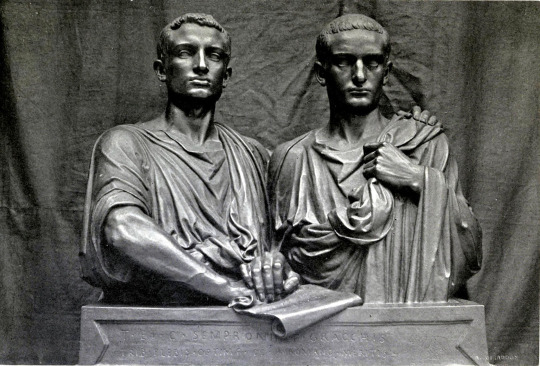
Freiwirtschaft is also distinctive from social democracy in that it largely aims to correct inequality in the market rather than redistributing after the fact. Given the context of late 19th century/early 20th century Germany, it makes sense that Gesell did see social insurance as insufficient for combatting poverty and inequality . From his actions as the People's Representative for Finances in the Bavarian Socialist Republic, it does seem that Gesell intended the money from his freigeld and freiland systems to go to providing a more comprehensive basic income.
#history#intellectual history#socialism#history of socialism#market socialism#georgism#henry george#social democracy
16 notes
·
View notes
Text
Long flowly dresses, Chilling at home, No work stress, Not having your own money, Yummy food, Your husband beating you, Cute babies, ect.
Stay at home girlfriends on tik tok, and trad wives on Tumblr, are propaganda for traditional gender roles and oppression of women. Now I know this sounds extreme but let's look at the definition of propaganda. " information, especially of a biased or misleading nature, used to promote or publicize a particular political cause or point of view."
Now Trad wifes on Tumblr will show cute pictures of flowy dresses, fields, bread, and talk about all the feminine things they love. This only shows the good side and leaves out vital information. Like that the wife needs permission to go out, drive, get finances, ect. She must follow her husband's rules. Even if she chooses this life, the power dynamic is still abuse. They also won't tell you that "domestic discipline" means the husband spanking the wife, whenever he decides she did something wrong.
Then there is stay at home girlfriends. They will show their life of leisure without kids, or a job. They do want they want all day and chill. What they don't show you is that without a job they rely on someone else financially. They don't show you how hard it will be be to get a job if the relationship doesn't work out. They also talk about "feminine energy" this makes is seem like doing nothing but house chores comes naturally and is tied up with being a woman. It's a new way of wording old outdated beliefs.
I want to believe these people are not making propaganda on purpose. Social media is supposed to be fun. And life problems are very personal. For these reasons we often only show the happiest sides of things on social media. However, we still live in a society where a lot of people think women are lesser than men. So when women get in relationships where the man has more power and doesn't talk about that aspect of it, only the fun parts, it becomes propaganda even if that's not what she intended.
Now you might say, but those women choose to be in those relationships! Stop belittling them! give them freedom! I ask you why do we see women as stay at home wifes, girlfriends, in submissive roles, more than men? Why have I never seen a gay couple with this dynamic? It's mostly women in relationships with men getting into these iffy situations, why? It must have something to do with gender oppression.
Stay at home dads exist and I'm sure there are gay couples where only one works, but I'm still just as concerned for them as the women mentioned before.
Also if you're going to argue I should let women make their own choices without criticism
1. It's not just about women
2. Who gets to choose?
Most of these women are white. Also you must have a pretty rich partner to not work yourself. Most women don't have the choice of lifestyle they want, most people in general can't live in their ideal situation for that matter. So if you really support people's right not to work and focus on what they want, you should argue for a higher minimum wage so people can work less, or abolish capitalism all together. But as the system works right now, certain choices are dangerous ones.
If you hate having a job so much maybe you should do some anti capitalism activism, not give your partner an unhealthy amount of power in your relationship.
Here are some ways you can do that:
•Vote for socialist candidates
•campaign
•Support strikes
• volunteer at food banks, homless shelters, and other places that give free essentials
#financial abuse#physical abuse#abuse#abuse mention#activism#feminism#my opion#tik tok#comentary#Tumblr#gender oppression#gender
11 notes
·
View notes
Text
What Americans want

Tomorrow (Oct 19), I'm in Charleston, WV to give the 41st annual McCreight Lecture in the Humanities. And on Friday (Oct 20), I'm at Charleston's Taylor Books from 12h-14h.

If you aspire to be a Very Serious Person (and whomst amongst us doesn't?) then you know why we can't have nice things. The American people won't stand for court packing, Congressional term limits, the abolition of the Electoral College, or campaign finance limits. Politics is the art of the possible, and these just aren't possible.
Friends, you've been lied to.
The latest Pew Research mega-report investigates Americans' attitudes towards politics, and honestly, the title says it all: "Americans’ Dismal Views of the Nation’s Politics":
https://www.pewresearch.org/politics/2023/09/19/americans-dismal-views-of-the-nations-politics/
The American people hate Congress. They hate the parties. They hate the president. They hate the 2024 presidential candidates. They loathe the Supreme Court. Approval for America's bedrock institutions are at historic lows. Disapprovals are at historic highs.
The report's subtitle speaks volumes: "65% say they always or often feel exhausted when thinking about politics." Who can blame them? After all: "63% express not too much or no confidence at all in the future of the U.S. political system."
"Just 4% of U.S. adults say the political system is working extremely or very well": that is to say, there are more Americans who think Elvis is alive than who think US politics are working well.
There are differences, of course. Young people have less hope than older people. Republicans are more reactionary than Democrats. Racialized people trust institutions less than white people.
But there are also broad, bipartisan, cross-demographic, intergenerational agreements, and these may surprise you:
Take Congressional term-limits. 87% of US adults support these. Only 12% oppose them.
Everyone knows American gerontocracy is a problem. I mean, for one thing, it's destabilizing. There's a significant chance that neither of the presumptive US presidential candidates will be alive on inauguration day:
https://pluralistic.net/2023/07/01/designated-survivors/
But beyond the inexorable logic of actuarial science, there's the problem that our Congress of septuagenarians have served for decades, and are palpably out-of-touch with their constituents' lives. And those constituents know it, which is why 79% of Americans favor age limits for elected officials and Supreme Court justices:
https://www.pewresearch.org/politics/2023/09/19/how-americans-view-proposals-to-change-the-political-system/
Not all of this bipartisan agreement is positive. 76% of Americans have been duped into favoring a voter ID requirement to solve the nonexistent problem of voter fraud by imposing a racialized, wealth-based poll-tax. But even here, there's a silver lining: 62% of American support automatically registering every eligible voter.
Threats to pack the Supreme Court have a long and honorable tradition in this country. It's how Lincoln got his antislavery agenda, and how FDR got the New Deal:
https://pluralistic.net/2023/03/25/consequentialism/#dotards-in-robes
The majority of Americans don't want to pack the court…yet. The race is currently neck-and-neck – 51% opposed, 46% in favor, and with approval for the Supreme Court at lows not seen since the 2400 baud era, court-packing is an idea with serious momentum:
https://www.pewresearch.org/short-reads/2023/07/21/favorable-views-of-supreme-court-fall-to-historic-low/
66% of Democrats want the court packed. 58% of under 30s – of every affiliation – favor the proposal.
And two thirds (65%) of Americans want to abolish the Electoral College and award the presidency to the candidate with the most votes. That includes nearly half (47%) of Republicans, and two thirds of independents.
Americans believe – correctly – that their elected representatives are more beholden to monied interests than to a sense of duty towards their constituents. Or, as a pair of political scientists put it in their widely cited 2014 paper:
Economic elites and organized groups representing business interests have substantial independent impacts on U.S. government policy, while average citizens and mass-based interest groups have little or no independent influence.
https://www.cambridge.org/core/journals/perspectives-on-politics/article/testing-theories-of-american-politics-elites-interest-groups-and-average-citizens/62327F513959D0A304D4893B382B992B
So yeah, no surprise that 70% of Americans believe that voters have too little influence over their elected lawmakers. 83% of Republicans say big campaign donors call the shots. 80% of Democrats agree.
Which is why 72% of Americans want to limit political spending (76% for Democrats, 71% for Republicans). The majority of Americans – 58% – believe that it is possible to get money out of politics with well-crafted laws.
Americans truly do have a "dismal view of the nation's politics," and who can blame them? But if you "feel exhausted thinking about the nation's politics," consider this – the majority of Americans, including Republicans, want to:
abolish the electoral college;
impose campaign spending limits;
put term limits on elected officials and Supreme Court justices;
put age limits on elected officials and Supreme Court justices; and
automatically register every eligible American to vote.
What's more, packing the Supreme Court is a coin-toss, and it's growing more popular day by day.
Which is all to say, yes, things are really screwed up, but everyone knows it and everyone agrees on the commonsense measures that would fix it.

If you'd like an essay-formatted version of this post to read or share, here's a link to it on pluralistic.net, my surveillance-free, ad-free, tracker-free blog:
https://pluralistic.net/2023/10/18/the-people-no/#tell-ya-what-i-want-what-i-really-really-want


My next novel is The Lost Cause, a hopeful novel of the climate emergency. Amazon won't sell the audiobook, so I made my own and I'm pre-selling it on Kickstarter!
#pluralistic#gerontocracy#corruption#politics#polling#usa usa usa#pew#term limits#scotus#pack the court#citizens united
200 notes
·
View notes
Text

youtube

You can see where the money goes!
After Biden again wants to donate many billions in aid to the most corrupt country in Europe, the German finance minister travels to warlord Zelenskyy in Kiev and also promises many more billions.
I hope the whole western monetary system finally collapses. We need a real reset!
—
What is particularly infuriating is how the West, which itself has largely abolished conscription, completely ignores how the Ukrainian government is forcing all men over the age of 18 to do military service! Even trans women! Where are the cries of the LGBTQ+ community?!
2 notes
·
View notes
Note
It's about the OC you recently posted w/ the lady revolution leader & from the POV from the male LI I think
OKOKOKOK THATS WHAT I THOUGHT BUT I DIDNT KNOW IF I DID ANYTHING ELSE WKJHGSASDFGH
(This is just going to be random information and facts I like asdfghj)
Their society is split into a caste system, from highest to lowest it's Diamonds (who usually uphold the law and are more likely to get positions of power) Spades (upper class, businessmen), Hearts (minimum wage workers or maybe businessmen), and Clubs (usually hard labor workers). Although there isn't exactly a difference in how they're provided for, everyone has the same housing opportunities and they aren't segregated in any way (theres technically nothing stopping a Club from trying to be a politician) theres still bias that will make it a lot harder for them to get the position.
The "main" girl is eighteen year old Clementina, she lives next to Guy and was essentially raised by him (their relationship is 100% father/daughter, and he often checks up on her or gives her food, she trusts him 100%) she's a Heart who is in love with a Club (her boyfriend Archer), this leads them both to decide to challenge the Empire (not fully delved into in the story so I don't have the details exactly but it's basically an appointed person of each caste who keep all the rules in place) in order to abolish how the caste system is currently implemented.
But that plot (even though I like it a lot), is mostly on the back burner. Guy himself is pretty oblivious to the revolution. The story itself is supposed to show how a normal day to day person functions in a society thats going under drastic changes. He doesn't do anything heroic, he's a normal middle aged man who works from home doing finance. His side of the story is pretty domestic for the first portion, but eventually it turns to him trying to stay optimistic when, even though he's a regular citizen, he gets caught in the crossfire that Clementina caused.
11 notes
·
View notes
Text
Sometimes I play around in my head about what kind of government programme/manifesto we’d need to unfuck this cursed island (rather futile because I don’t really see the state playing any positive role in the future but w/e, it’s an interesting parlour game), something I keep landing on is participation in the Belt & Road Initiative and a pivot towards China instead of the US. The industrial infrastructure of the UK is totally fucked, the population’s capacity to fix it has been totally fucked by decades of being a service based consumption economy. The same is the case with the US - a partnership with the US gives us access to (increasingly worthless) dollars and (increasingly useless and extremely expensive) fighter jets and little else. Meanwhile China has huge industrial output and expertises and a strong willingness to partner with other countries for infrastructure projects.
All the issues with partnering with China apply just as much to the US. Dictatorship, suppression of protests and human rights violations? Just look at how the US is treating its people! More prisoners than anywhere else in the world in its gulag system. The response to the 2020 protests! The dead organisers of the Ferguson protests! The totally unelected Supreme Court is regressing the country into a Christian fascism and abolishing fundamental rights without so much as a debate by elected officials. Debt trap diplomacy? What on Earth is the IMF then, demanding countries sell off all their resources to American corporations? Internet surveillance? Our intelligence services at GCHQ are handing all of our data over to the NSA!
The issues of the Chinese state all pale in comparison to our current “special partner”. The only difference is a partnership with China could give us the space, expertise and access to materials necessary to move away from an economy totally dominated by finance, war, and the American empire.
17 notes
·
View notes
Note
with the whole recent discussions of “what if Laurens lived”, I was wondering what would have become of Philip Hamilton had he lived in your opinion? I’m in love your blog and research:]
Y'all are torturing me this November.
To be quite honest, if he didn't die/attend in the duel with Eacker — what would have stopped him from just getting into another duel? Because that is what most likely what would have happened. But to spare the angst, lets just say he lives;
Philip most likely would have accomplished what he was raised to do, become the Hamilton family dynasty, and follow in his father's footsteps. Likely becoming a successful and great lawyer since he had his “daddy's name and wealth” to give him a great start. And considering how involved and aware of politics he already was at age nineteen, there's no doubt he would have taken up that role as well and kept his father's ideals of the country still in the government system after Hamilton would step down. Some biographies claim that Philip was being “groomed” to become president, so perhaps there's that. But he definitely would have met the heavy expectations that were placed upon him. But I'm not sure how well he would go into finances. There's the wishful thinking he would play some part in abolishing slavery, or at least work against it as John Church and Lil Phil had. But likely not anything too influential.
Because he was the hier and supposed to set the example for his siblings, I'm sure he would have married and have a large family. But then again, many of the Hamilton's children didn't have many kids of their own ( Alex and William never had kids, James only had three, and Phil had two, but John had fourteen so who knows ).
I doubt he would be any incentive for Hamilton to refuse the duel with Burr, considering that his actual death wasn't enough to sway Hamiltons mind. So, he would probably do what James had done and helped his mother take care of the estate, and helped his brothers start their careers. Considering he would be stable before all this, I'm sure it would solve a lot more of Elizabeth's original poverty troubles, since he would be able to financial support his family. Likely keeping the Grange and even moving in and owning it with his own family and mother. And most definitely would have worked restlessly with his family to preserve Hamilton's legacy. Similarly to his brothers, he would have enlisted in the war of 1812 to get a military name. Considering his headstrong and prideful attitude, I'm sure he craved battlefield action like his father, but in the end; would have favored politics.
I also think due to Hamilton's death with all the responsibilities he would have to take on, he likely would have matured from his rebellious teenage years. But for creative liberty and thought, he would likely still have issues with alcohol considering how much he turned to it during his teen years. Still getting into bar fights, or even just political fights that turn physical. Additionally I'm certain he would still get involved with duels, and likely would have challenged Burr ( Though I doubt he would accept ). But considering his reckless and hotheaded nature, he likely would have turned out a disliked and disagreeable figure like his father.
In the end, Philip's life was heavily constructed upon the ideal of Hamilton's life; and that probably would have never changed.
#amrev#american history#philip hamilton#hamilchildren#history#hamilton family#hamilton kids#hamilkids#hamilton children#queries#sincerely anonymous#Cicero's history lessons
20 notes
·
View notes
Photo

Let’s talk about the next 20 years. But before we do that, let’s reflect on what happened 15 years and 250 years ago. On March 23, 2023, Pluto will move into Aquarius. It has been in Capricorn for the last 15 years. The last time Pluto was in Aquarius was from 1776 to 1798. 1776 when our country was in its infancy and The Declaration of Independence was signed. In 1777 the first Stars and Stripes flag was introduced completing the unity of the United States of America and it was the beginning of movements abolishing slavery. The US is entering a Pluto return. Why is this important? Most don’t know much about Pluto so let’s review what Pluto represents astrologically. Pluto is the planet of death and rebirth. It represents transformation. It also represents shared finances and sexuality. It’s the breakdown and rebuild of societal structures and is a generational planet with its larger impacts on society as a whole. Now let’s review Aquarius. Aquarius represents the collective and our community on one side but on the flip side it represents isolation. It’s the- I love you all but leave me alone sign. Aquarius is a fixed and stubborn energy. So here’s the thing, being stubborn isn’t gonna work under Pluto. It will break it all down and destroy everything in its path. It’s the Tower card in the Tarot deck. So what does this all mean? Let’s first reflect on when Pluto entered structured Capricorn in 2008. What did we see? The first financial crisis and recession in our most recent history, the housing market crashed and we elected our first black President, just to name a few. Now, Pluto has been hanging out at the critical 29° mark in Capricorn. It’s been doing a review of everything that’s gone down in the last 15 years and we’re really seeing it in the news. The financial system is taking a hit. Banks are going bankrupt once again. (Continued in comments) https://www.instagram.com/p/CpxUdeegNOl/?igshid=NGJjMDIxMWI=
3 notes
·
View notes